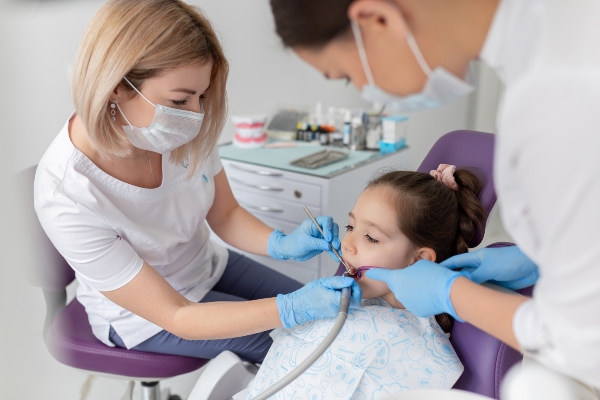 Excluding sugar in the diet is part of preventive dental care for kids. This common pantry item is almost in every processed food. It acts as a preservative and flavor enhancer. At the same time, it can harm your child’s teeth. If you want to know the reasons for avoiding sugar as part of preventive dental care for kids, here are the details.
Excluding sugar in the diet is part of preventive dental care for kids. This common pantry item is almost in every processed food. It acts as a preservative and flavor enhancer. At the same time, it can harm your child’s teeth. If you want to know the reasons for avoiding sugar as part of preventive dental care for kids, here are the details.
The effects of sugar on a child’s health
Consuming sweets means bringing more food for the bad bacteria in the mouth. It is often a challenge for parents to make children give up sugar. Children find sugar irresistible in the first place. But because of the following reasons, sugar should be avoided for preventive dental care for kids:
- Tooth decay begins as the child consumes sugar. This means bacteria excrete more acid that erodes the enamel. The toxins from these organisms cause inflammation of the gum tissue. These events result in pain, redness, childhood gingivitis, and tooth decay.
- Dental pain also occurs because of enamel erosion. This makes it difficult for children to eat the right foods.
In addition to the obvious harm to the child’s dental health, sugar also causes learning problems in children. Studies show that sugar brings about brain fog, which leads to cognitive weakness and neurological conditions during adulthood. Childhood obesity is also a consequence of eating too much sugar. This condition makes it difficult for the child to stop eating. The excessive weight also makes it challenging for the child to play and fit in.
Why sugar brings about tooth decay
Sugar alone does not cause decay. The events following sugar consumption cause dental damage. The parent and child must learn to understand that the harmful bacteria in the mouth use the sugars to multiply. As these organisms eat the sugars, they give off acids that erode the enamel layer of the teeth.
Plaque forms eventually. This sticky substance produces more bacterial acids. It helps make the tiny cavities bigger and deeper. Over time, the decay will reach the dentin and pulp layers. The permanent damage can result in tooth loss.
Protecting the child’s tooth through preventive dental care for kids
Sugar may be harmful to teeth, but this does not mean that kids should be deprived of this treat. Limiting the child’s sugar intake is important. But if the child does consume sweet or starchy treats, parents must be prepared. This is where preventive dental care for kids comes in to save the day. Teaching the child how to protect teeth after consuming sugary foods can help prevent the development of cavities. Below are some helpful oral hygiene tips:
- Using fluoride and having fluoride treatments can strengthen and protect the child’s teeth from decay.
- Brushing for two minutes twice a day can help remove plaque and food particles from teeth.
- Flossing before bed can remove food particles and plaque between teeth.
- Drinking more water than juices and sodas can rinse the sugar out of the child’s mouth. This clear liquid triggers the production of more saliva, which can neutralize the acid that bacteria produce in the mouth.
Limiting sugar intake is ideal for maintaining preventive dental care for kids
Keeping sugar as a treat rather than part of a meal can help reduce the risk of dental decay. This can help preventive dental care for kids become more effective. It may be difficult at first, but giving healthier snacks in place of the sugary ones is a good start. Working with the dentist can make your home dental care easier to manage.
Request an appointment or call Grand Parkway Pediatric Dental at 832-579-0960 for an appointment in our Richmond office.
Recent Posts
Visiting a pediatric dentistry office with your child ensures his or her future relationship with oral hygiene and dentists, in general. Whenever your child suffers from oral injuries, consider making an appointment with your pediatric dentist to uncover any underlying problems. For instance, injuries to the tongue and teeth could indicate a deeper jaw or…
Fluoridated water is part of pediatric dentistry. It is a convenient and easy way to strengthen and protect teeth at an early age. Many areas have fluoridated water, which is a definite advantage. If you want to know why a dentist will likely recommend fluoridated water, here are the details.Studies show that almost all sources…
Nutrition is an important part of pediatric dentistry. Having balanced amounts of vitamins and minerals can strengthen and protect the teeth. Proper nutrients also fuel dental function. If you want to know how important nutrition is for your child’s oral health, here are the details from a pediatric dentistry professional.Children are still developing. They need…


